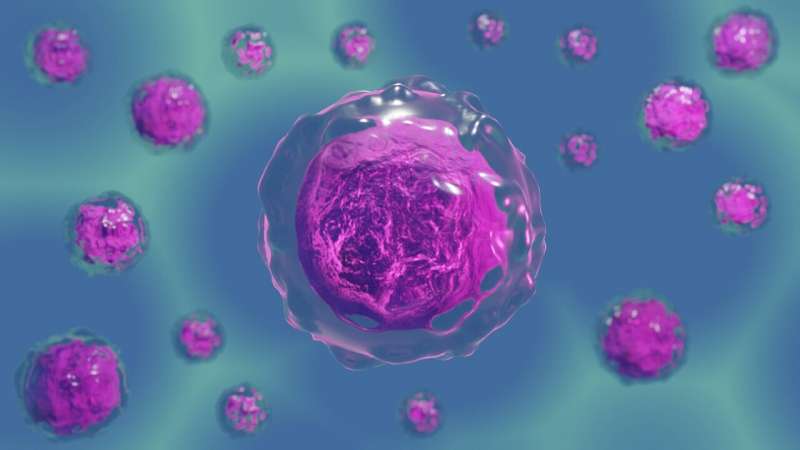New Approach for Treating Resistant Blood Cancers by Blocking CD200R1 Protein

Scientists have discovered that blocking the CD200R1 protein can activate immune cells to fight treatment-resistant blood cancers, paving the way for novel therapies.
Recent breakthroughs in immunotherapy have opened new avenues for combating treatment-resistant blood cancers such as leukemia and lymphoma. While current immunotherapies, like immune checkpoint inhibitors targeting proteins such as PD-1, have significantly advanced cancer treatment, they are not effective for all patients or all cancer types. This challenge has motivated researchers worldwide to explore alternative therapeutic strategies.
A pioneering study conducted by Dr. André Veillette's team at the University of Montreal, in collaboration with international scientists, has identified a promising target: the CD200R1 protein. Led by doctoral student Jiaxin Li, the research revealed that CD200R1 is a molecule found on macrophages—immune cells responsible for engulfing and destroying abnormal cells. The study demonstrated that blocking CD200R1 with specific antibodies activates macrophages, thereby enhancing their ability to eliminate certain blood cancers.
Published in Nature Communications, the study highlights that inhibiting CD200R1 effectively boosts macrophage activity, leading to a reduction in cancer cells in preclinical mouse models. This discovery is significant because it provides a new mechanism of immune activation distinct from existing therapies, potentially overcoming resistance seen with current treatments.
The findings suggest that targeting CD200R1 could offer an innovative therapeutic avenue for patients with cancers that do not respond to traditional immunotherapies. The research team is now focusing on developing collaborations to assess whether this approach can be translated into human therapies, potentially transforming options for patients battling resistant blood cancers.
This advancement marks an important step toward expanding immunotherapeutic strategies and underscores the potential of targeting immune checkpoints beyond those currently used in clinical practice.
Stay Updated with Mia's Feed
Get the latest health & wellness insights delivered straight to your inbox.
Related Articles
Breakthrough in Biological 'Artificial Intelligence' System by Scientists
Australian scientists have developed PROTEUS, a revolutionary biological AI platform that accelerates molecular evolution within mammalian cells, opening new horizons for gene therapies and drug development.
Streamlined Approach to Detect Harmful Medications in Older Cancer Patients
A new study validates a targeted tool for identifying harmful medications in older adults with cancer, aiming to improve safety and treatment outcomes through careful medication review.
New Insights into Tick Antiviral Defenses Could Lead to Better Control of Deadly Fever Virus
Recent research uncovers how ticks actively combat deadly viruses, revealing new targets to prevent disease transmission. Discover how natural antiviral proteins in ticks could help stop the spread of severe fever viruses.
A Neurologist's Perspective on Living with Alzheimer's Disease: Insights and Personal Experience
Dr. Daniel Gibbs shares his personal journey with Alzheimer's disease, highlighting early signs, genetic risk, lifestyle strategies, and the importance of early detection for managing the condition effectively.



